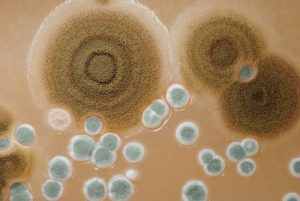Maintaining a mold-free air conditioner service in Fresno is crucial for both your health and the efficiency of your cooling system. Mold can cause various health issues, including allergies and respiratory problems, and it can also reduce the efficiency of your air conditioning unit, leading to higher energy bills. In this blog, we will explore the main causes of mold growth in AC systems and provide you with actionable tips to prevent and tackle this issue effectively.
Donald P. Dick Air Conditioning Blog: Posts Tagged ‘mold’
5 Ways To Tackle Mold Growth In Your Air Conditioner
Monday, July 1st, 2024Does Your Home Have a Humidity Problem?
Thursday, October 8th, 2015 Indoor humidity is an element of your home’s air quality that can be confounding to deal with. Mitigating correlating indoor air quality problems, such as increased airborne allergens, may be as simple as using a higher-efficiency HVAC filter. Using portable dehumidifiers may seem like a logical way to mitigate a humidity problem, but they are ineffective as a whole-home solution.
Indoor humidity is an element of your home’s air quality that can be confounding to deal with. Mitigating correlating indoor air quality problems, such as increased airborne allergens, may be as simple as using a higher-efficiency HVAC filter. Using portable dehumidifiers may seem like a logical way to mitigate a humidity problem, but they are ineffective as a whole-home solution.
A/C Condensate Drain Problems You Should Know About
Thursday, July 2nd, 2015 While the air conditioner is cooling down your air, it’s also extracting gallons of water every day. If the condensate drain system is working properly, all that water is immediately expelled outdoors. However, sometimes A/C condensate drain problems can develop and cause water backups and other malfunctions. Here are three common A/C drainage problems, along with some effective solutions.
While the air conditioner is cooling down your air, it’s also extracting gallons of water every day. If the condensate drain system is working properly, all that water is immediately expelled outdoors. However, sometimes A/C condensate drain problems can develop and cause water backups and other malfunctions. Here are three common A/C drainage problems, along with some effective solutions.
It’s Time to Inspect Your Home’s Attic Ventilation
Tuesday, April 14th, 2015 Whether they’re crawlspaces, storage spaces or fitted as lofts, attics don’t exactly have a reputation for comfort. Part of this is because they tend to be hot, stuffy, humid and poorly ventilated. Between indoor heat rising and solar heat hitting the roof and radiating downward, attics can rise to high temperatures. Often they’re not air-conditioned, which makes them a pocket of heat inside your home’s thermal envelope. That’s why home attic ventilation can be so helpful.
Whether they’re crawlspaces, storage spaces or fitted as lofts, attics don’t exactly have a reputation for comfort. Part of this is because they tend to be hot, stuffy, humid and poorly ventilated. Between indoor heat rising and solar heat hitting the roof and radiating downward, attics can rise to high temperatures. Often they’re not air-conditioned, which makes them a pocket of heat inside your home’s thermal envelope. That’s why home attic ventilation can be so helpful.
5 Surprising Indoor Allergy Triggers in Your Home
Thursday, March 5th, 2015An Air Filter Primer: How and When to Change It and More
Tuesday, June 10th, 2014 Changing or cleaning the air filter on your A/C, heat pump or furnace on a regular basis is HVAC maintenance 101. It’s a simple job that will improve your cooling and heating system’s energy efficiency and performance in many ways.
Changing or cleaning the air filter on your A/C, heat pump or furnace on a regular basis is HVAC maintenance 101. It’s a simple job that will improve your cooling and heating system’s energy efficiency and performance in many ways.
UV Lights and How They Eliminate Germs
Thursday, May 1st, 2014 There are many contaminants that can lower the quality of the indoor air you breathe. They can cause discomfort, trigger allergies, exacerbate respiratory conditions and can even make you sick. Various microorganisms – including mold spores, mildew, bacteria and viruses – are particular contaminants that you should try to eliminate in your home. Not many strategies are as effective for targeting airborne organisms in your home as are ultraviolet (UV) light filtration systems.
There are many contaminants that can lower the quality of the indoor air you breathe. They can cause discomfort, trigger allergies, exacerbate respiratory conditions and can even make you sick. Various microorganisms – including mold spores, mildew, bacteria and viruses – are particular contaminants that you should try to eliminate in your home. Not many strategies are as effective for targeting airborne organisms in your home as are ultraviolet (UV) light filtration systems.
Attic Fans — A Breath Of Fresh Air Does Wonders
Thursday, October 25th, 2012 In our central California climate, an attic fan is equally important in summer and winter — but for different reasons. In summer, heat accumulation in a poorly ventilated attic can send temperatures up to 150 degrees. All that heat baking the wooden structure of the attic and sub-roof can be damaging. Even worse, it migrates down into living spaces and makes your A/C work harder, raising utility costs. During winter, humid air infiltrating from rooms below condenses in the cold attic. This saturates attic insulation, destroying its heat-resistant properties. The wet environment also promotes mold and warps wooden structural components.
In our central California climate, an attic fan is equally important in summer and winter — but for different reasons. In summer, heat accumulation in a poorly ventilated attic can send temperatures up to 150 degrees. All that heat baking the wooden structure of the attic and sub-roof can be damaging. Even worse, it migrates down into living spaces and makes your A/C work harder, raising utility costs. During winter, humid air infiltrating from rooms below condenses in the cold attic. This saturates attic insulation, destroying its heat-resistant properties. The wet environment also promotes mold and warps wooden structural components.
7 Facts About Mold That Every Homeowner Should Know
Thursday, May 31st, 2012 Toxic mold poses serious risks to both your health and the structural integrity of your home. As a homeowner, it’s important that you know the facts about mold so you can prevent it from developing, or deal with it safely and effectively if spores have already gained a foothold. With that in mind, here are seven key facts about mold:
Toxic mold poses serious risks to both your health and the structural integrity of your home. As a homeowner, it’s important that you know the facts about mold so you can prevent it from developing, or deal with it safely and effectively if spores have already gained a foothold. With that in mind, here are seven key facts about mold:


 If you have allergies, you know how important – and how difficult – it can be to find relief in your own home. Unfortunately, indoor environments can concentrate air pollution, especially if they don’t have a working ventilation system.
If you have allergies, you know how important – and how difficult – it can be to find relief in your own home. Unfortunately, indoor environments can concentrate air pollution, especially if they don’t have a working ventilation system.